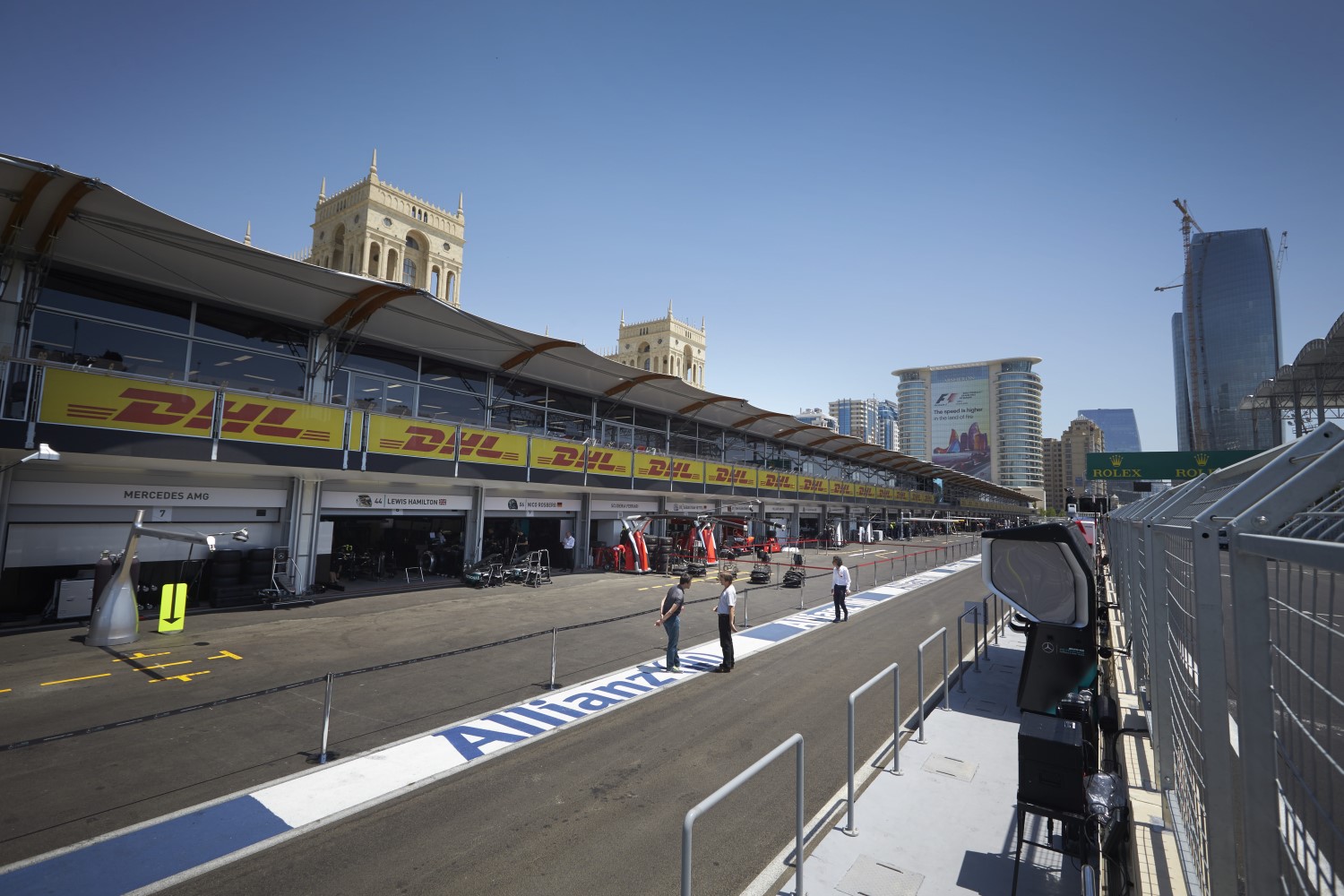BakuF1 – Heaping on the Caviar
 |
| The Baku GP pits |
Some call it the Paris of the Caspian; others purr that it is the caviar-producing region's Dubai. But on the weekend of June 18th and 19th the comparisons were with Monaco writes Matthew Valencia of the Economist.
Baku's first-ever Formula 1 race took place on a 6km (4-mile) street circuit in the heart of Azerbaijan's capital. On the longest straight, cars screamed up to 354kph (220mph), whooshing past the imposing, Stalin-era Government House and a marble-paved waterfront promenade. The circuit also incorporated fiendishly tight chicanes in a section that winds picturesquely around the walls of Baku's UNESCO-protected old town.
The juxtaposition of medieval and modern architecture – the latter itself a mix of communist kitsch and modernist, skyscraping hotels and office blocks, built on hydrocarbon wealth – was stunning. “Wow! It's all either centuries old or ten minutes old," enthused a team official. Draped over the side of one of Baku's half-dozen five-star hotels was a giant banner announcing that “The speed is higher in the land of fire" (as Azerbaijan is known because, some say, of its flaming surface-oil deposits). At night the facades of Baku's tallest skyscrapers (above) were turned into giant LED-display screens showing figures waving checkered flags. Adding to the sense of unreality were the hundreds of purple-sprayed London taxis on the streets.
The race, truth be told, wasn't terribly exciting. Having bagged pole position, Nico Rosberg of the Mercedes team led comfortably throughout. It lacked the sense of spectacle of Grand Prix extravaganzas held in Europe and Asia, which can attract crowds of more than 200,000. The children dressed as FI drivers, who paraded past the paddock during the opening ceremony, were waving to largely empty stands. There were plenty of unoccupied seats on the main grandstand. The FI “village" of shops, bars and caf�s was often eerily quiet. There were 25,000 paying customers over the three days of practice, qualifying and racing. Azerbaijan may be oil-rich, but the wealth is unevenly spread: few of its 9m people could afford tickets, even when offered a 40% discount. Foreigners came only in dribs and drabs. The event's boosters say it was Baku's first shot at hosting; give it time. “Your first Grand Prix is always a prototype," says Arif Rahimov, the chief race organiser (and son of Azerbaijan's sports minister).
The government of Ilham Aliyev says the race is part of a plan to develop tourism, thereby diversifying the economy away from oil, which accounts for the bulk of export revenues. But it is about more than putting bums on grandstand seats. Hosting FI is seen as a way to brand the nation, to get it noticed and respected. Grands Prix, with their global audience and high-end sponsors, are, as the Guardian, a British newspaper, once put it, a “must-have accoutrement for nouveau-riche nations". FI will help to “put us on the map", says Rahimov. Such events are about making sure “people far away no longer think Azerbaijan is the capital of Nigeria," chortles Pierce O'Callaghan, a sports official who has lived in Baku.
Critics say Grands Prix are at best vanity projects, and at worst “sportswashing": used for propaganda purposes at home and to launder the regime's reputation abroad. Aliyev succeeded his father, Heydar, as president in 2003 in a rigged election; he used a subsequent referendum to abolish presidential term limits. He plans to consolidate his power further in an upcoming plebiscite. Under its apparent leader-for-life, Azerbaijan has consistently persecuted critics. There are somewhere between 30 and 100 political prisoners. Among them is Ilgar Mammadov, a lawyer who was arrested in 2013 after toying with a presidential run. His supporters say he has been beaten in prison, possibly for refusing to plead for clemency. Azerbaijan ranks 163rd out of 180 countries in the Reporters Without Borders media-freedom index. You can be arrested for publishing, or even liking, the wrong sort of Facebook post. The European Court of Human Rights has ruled several times against the regime, only to be ignored. More by Matthew Valencia/The Economist
